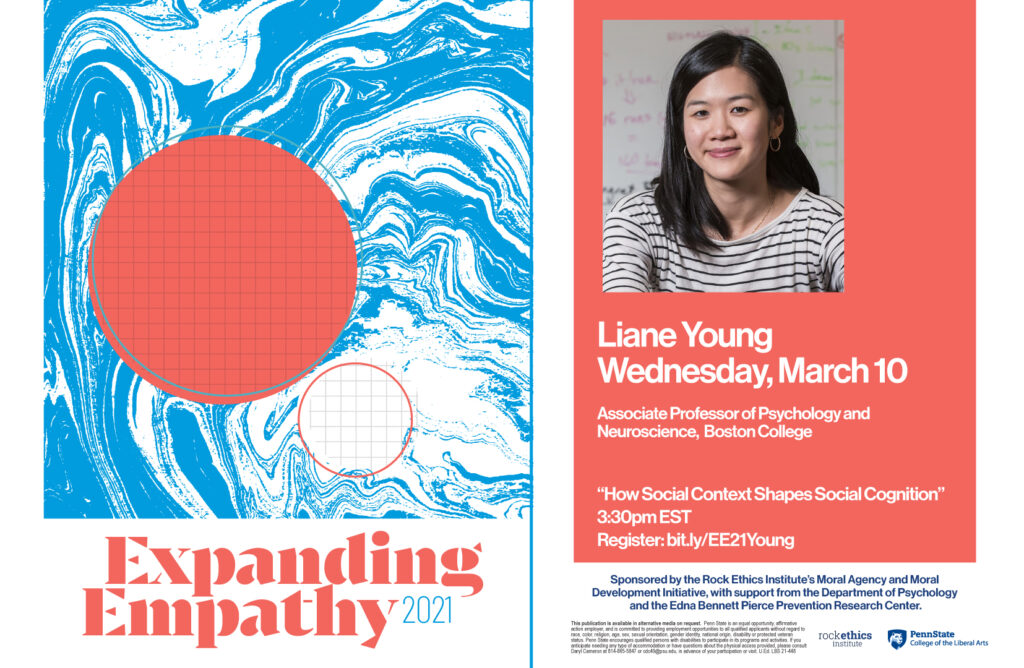Expanding Empathy Lecture Series: Liane Young
Social Context Shapes Social Cognition
Abstract: As social creatures, we spend a lot of time thinking about the mental lives of those around us, both for social interaction and for moral evaluation. My talk today will explore the broad question of how social context shapes these processes, from a social neuroscience perspective. First, how is theory of mind (i.e., thinking about mental states) deployed for cooperation vs competition, understanding helpful vs harmful actions? Does mental state representation differ across social contexts? Second, how does mental state inference support the processing of social prediction error and moral updating, for helpful vs harmful agents, friends vs strangers? We will look at whether asymmetries in moral updating (e.g., for friends vs strangers) can be diagnosed as motivated or rational inference. Finally, we will turn to the question of how people evaluate others who treat close vs distant targets (e.g., family vs strangers) differently, and the role of obligation in moral character judgments. Overall, we will see that social context shapes how we think about other minds, how we form and update moral impressions, and how we evaluate obligation.
Liane Young is an associate professor of psychology at Boston College, where she is the director of the Morality Lab, which specializes in moral psychology—dilemmas, judgment, and emotions in moral judgment and behavior. Dr. Young’s current research focuses on the role of theory of mind and emotions in moral judgment and moral behavior. To explore these topics, she uses the methods of social psychology and cognitive neuroscience, including functional magnetic resonance imaging (fMRI), and examination of patient populations with specific cognitive deficits. Among other media entities, Dr. Young’s insight and findings have appeared in The New York Times, National Public Radio, MSNBC, U.S. News & World Report, CNN, ABC News, CBS, and Fox News.

